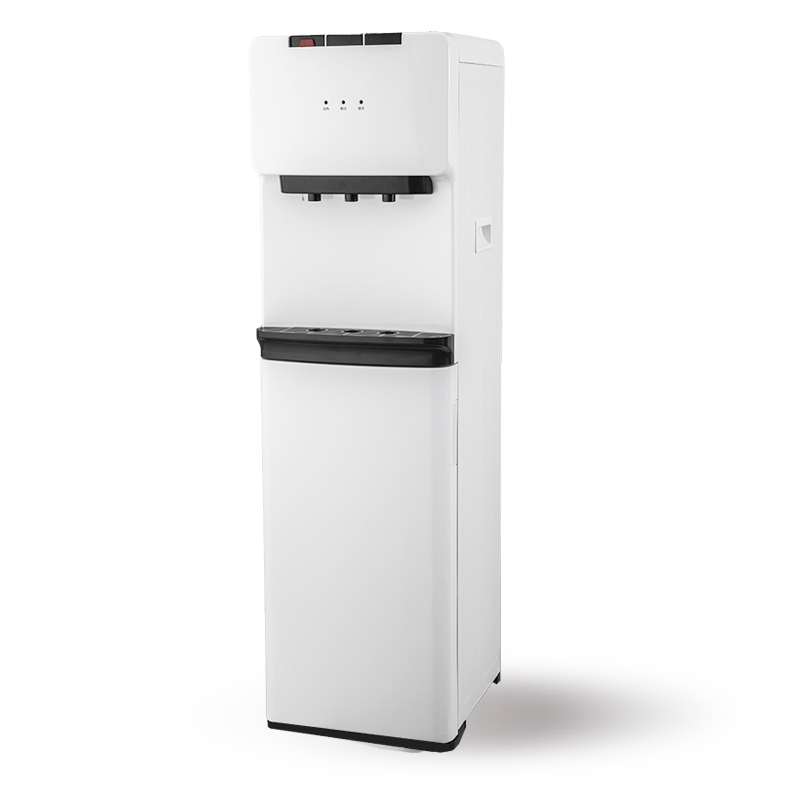How to choose the filtration system?
2020-12-26
The importance of filtering the water we drink is very important to ensure the safety of our drinking water. At present, the inner core used for drinking water filtration is divided into reverse osmosis, nanofiltration, and reverse osmosis.

①Reverse osmosis
RO reverse osmosis is an ultra-high-precision membrane separation technology that uses differential pressure. The filtration accuracy is about 0.0001 microns. It needs to be powered during use and can filter out 99% of the impurities (including harmful and beneficial) in the water. Allow water molecules to pass through. That is to say, the ratio of purified water to waste water in the process of using reverse osmosis membranes is about 1:1 to 1:3, so each time it is filtered, more than half of the water will be wasted. 2L of water per person per day for a family of 3 For example, 6.6 tons of water are wasted every year, which is unacceptable for ordinary families. Generally used in the manufacture of purified water, industrial ultrapure water, and pharmaceutical ultrapure water.
Because the pore size of the density RO reverse osmosis is very small, almost all heavy metals, organics and minerals are removed. Water for temporary thirst quenching is beyond reproach, but it is not suitable for daily drinking water. It has been proved by relevant experiments at home and abroad, especially for children and the elderly who drink pure water for long It may cause a decrease in immunity. In addition, reverse osmosis technology needs to be pressurized and powered up, the flow rate is small, the water utilization rate is low, and it is not suitable for the purification of large amounts of drinking water.
②Nanofiltration
NF filtration accuracy is between ultrafiltration and reverse osmosis, and its salt rejection rate is lower than reverse osmosis. It is also a membrane separation technology that requires power and pressure, and the water recovery rate is low. In other words, nearly 30% of tap water will be wasted in the process of water production with nanofiltration membranes. In addition to heavy metals, the filtered substances include calcium, magnesium, manganese, iron and other minerals that are beneficial to the human body. Only small molecular organic substances such as inorganic salts or glucose and sucrose are filtered, which are generally used for industrial pure water production.
③Ultrafiltration
UF ultrafiltration is a membrane separation technology using differential pressure, with a filtration accuracy of 0.001-0.1 microns, and is currently the most mainstream water purification membrane. It can filter out harmful substances such as rust, sediment, suspended solids, colloids, bacteria, and macromolecular organic matter in the water, and can retain calcium, magnesium, manganese, iron and other mineral elements that are beneficial to the human body. It is the core component in the production process of mineral water and mountain spring water.
The recovery rate of water in the ultrafiltration process is as high as 95%, and flushing and backwashing can be easily realized, not easy to block, and the service life is relatively long. Ultrafiltration does not need to be powered on and pressurized, it can be filtered only by tap water pressure, and the flow rate is large, which is more suitable for the comprehensive purification of household drinking water. Therefore, the purification of drinking water in the future will be based on ultrafiltration technology.
Finally, a brief summary
1. Daily drinking water is divided into pure water, mineral water, and tap water
2. Our drinking water methods include tap water barbecue, bottled water, mineral water, purifier, drinking machine, etc.
3. The purifier is divided into desktop/under the kitchen type, which is often used for kitchen water. It is recommended to boil and drink
4. The water purifier is divided into desktop, vertical and embedded, all have good filtering safety effect. The advantage of desktop is that it is convenient but it is very cumbersome to connect/pour water. Vertical type is generally used in office or public places, and embedded is simple and safe. , Is the trend of home improvement in the future, but it needs embedded cabinets as supporting equipment
Filtration is divided into reverse osmosis, nanofiltration, and ultrafiltration, which can filter heavy metals and harmful substances. The filtration grade of reverse osmosis is the highest, which is close to pure water. Long-term drinking is not recommended. Ultrafiltration can retain calcium, magnesium, manganese, iron, etc. Minerals, water production speed is fast, no electricity is needed, but the desalination (sodium chloride) ability is poor.



 English
English 简体中文
简体中文


